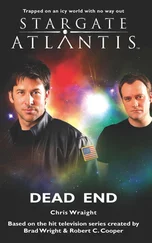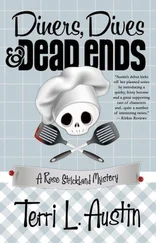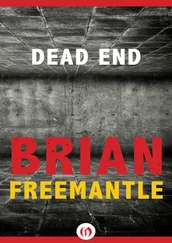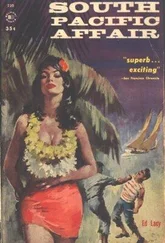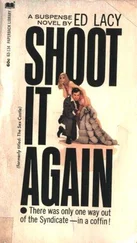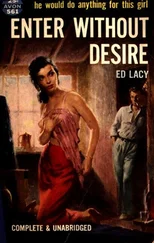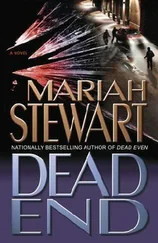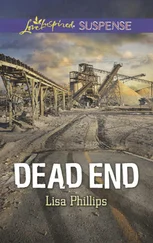Ed Lacy - Dead End
Здесь есть возможность читать онлайн «Ed Lacy - Dead End» весь текст электронной книги совершенно бесплатно (целиком полную версию без сокращений). В некоторых случаях можно слушать аудио, скачать через торрент в формате fb2 и присутствует краткое содержание. Жанр: Старинная литература, на русском языке. Описание произведения, (предисловие) а так же отзывы посетителей доступны на портале библиотеки ЛибКат.
- Название:Dead End
- Автор:
- Жанр:
- Год:неизвестен
- ISBN:нет данных
- Рейтинг книги:4 / 5. Голосов: 1
-
Избранное:Добавить в избранное
- Отзывы:
-
Ваша оценка:
- 80
- 1
- 2
- 3
- 4
- 5
Dead End: краткое содержание, описание и аннотация
Предлагаем к чтению аннотацию, описание, краткое содержание или предисловие (зависит от того, что написал сам автор книги «Dead End»). Если вы не нашли необходимую информацию о книге — напишите в комментариях, мы постараемся отыскать её.
Dead End — читать онлайн бесплатно полную книгу (весь текст) целиком
Ниже представлен текст книги, разбитый по страницам. Система сохранения места последней прочитанной страницы, позволяет с удобством читать онлайн бесплатно книгу «Dead End», без необходимости каждый раз заново искать на чём Вы остановились. Поставьте закладку, и сможете в любой момент перейти на страницу, на которой закончили чтение.
Интервал:
Закладка:
The ministers heard me and while they were giving me the big eyes, damn if this jerk doesn't leave the edge of the roof, walk toward me. I tackled him and that was that.
I made the moving job but figured the ministers would have me up the creek. So that night I find myself on the front pages, being praised for having used the “correct psychology”! It wasn't a big story, but my name was there and it was in the radio and TV news. Even my platoon sergeant gave me a snow job the next day and I figured this was it, I'd be made a detective. But nothing came of it. The kid's folks gave me a big speech of thanks, but that was all.
Nothing worked for me.
One morning a few months later as the platoon lined up a few minutes before eight, we were given parking tickets, told that alternate side of the street parking, to help in cleaning the streets, was now in effect, and to start giving out tickets to any car parked on the wrong side. I told myself this should be good for some cushion, but as it turned out, most times the guy who owned the car wasn't around. Now and then I got a few bucks for not writing out a ticket, but it was too open and risky.
The storekeepers, who usually parked their cars in front of their shops, were kicking like the devil about this alternate deal. I kept working on them, got to know most of their cars. I would go in and warn them to move their heaps. Most times all I got was a fast “Thanks,” or a promise that they would remember me at Christmas.
It got so I hardly bothered handing out tickets, but in the end it paid off—unexpectedly. I met Shep Harris.
The no-parking limit was from 8 a.m. to 11 a.m. Harris was an optometrist who had just opened an office over a shoe store. One morning at about a quarter to eleven I saw this smart red MG parked on the wrong side of the street. It wasn't a new car, but still I figured anybody with a foreign heap might be glad to pay a few bucks to avoid a ticket. When I asked the clerk in the shoe store if he knew who owned the car, he told me, “That's Harris's car, the guy that moved in upstairs. Usually he doesn't get here before noon. Some job, hey? Bet it does a hundred with ease. Now me, I say if you have a car, what good is a two-seater? I'd want to take the family...”
I walked up to his offices. A bell rang as soon as I opened the door, and the office was nicely furnished, everything new—meaning ready money. A runt wearing a white silk jacket, thick glasses making him look owlish and nervous, his narrow shoulders all bones, came in from the other room. He gave me a selling smile as he said, “What can I do for you, officer? Need glasses?”
I took him for a little older than myself, maybe twenty-seven, twenty-eight. “That your MG downstairs?”
“Oh Lord, did somebody crash into it?” he asked, racing for the window. Then he turned, asked me, “What's wrong with it?”
“This is Wednesday, no parking on this side of the street until eleven.”
He glanced at his watch. “Perhaps you do need glasses.” He held up his wrist so I could see it was exactly eleven.
“Okay, mister. I went out of my way to be nice to you. The next time I'll slap a ticket on the car, talk to you later.” I started for the door, angry.
“Now, officer, I was merely joking. I have too many tickets against my record now. I appreciate what you've done. Do you drink?”
“Not on duty.”
“Of course. Here.” He handed me five bucks. “As a personal favor to me, buy yourself a pint on your way home. A little token of my appreciation. Drop by any time.”
From then on, whenever I was on the morning tour, I kept a sharp lookout for his MG. I only managed to nick him a couple of times, but I kept kids off his car and we became sort of friendly. Harris never seemed very busy and I would drop in to use his can, shoot the breeze. He kept a bottle handy, seemed to want company. Either because he was a half-pint, or because he was such a weakling, he liked to touch me. Or maybe it was because I was a cop. You often find guys that way—not queers—who can't keep their mitts off a cop's shoulders when they talk to him. Shep was always poking me in the arm, slapping my back. Liquor never did much for me and sometimes I'd take a nip with him. Most times we'd just bull. I even sent a couple of the boys to him for glasses and he gave them reduced rates. I didn't mind Shep. I guess he was mostly lonely, wanted somebody to talk to.
In time I found out he'd always wanted to be a doctor but his folks ran out of money so he had to settle for being an eyeglass grinder—although an optometrist is more than that, I guess. The ironical part was he had married a rich babe but felt it was too late to go to med school—he claimed he was thirty-three. I used to tell him he was silly not to try it, as long as his wife didn't complain.
Elma was reading so many of these crummy magazines her eyes hurt, but I never took her to Shep. I was ashamed for him to see what I had married. Like an altered cat, Elma seemed to get bigger every day.
I'd been a regular cop for over a year and I felt I was going stale. Somehow the badge didn't have much of a kick any longer. Maybe I was bored with walking my arches flat, giving out tickets, breaking up family fights, shoving drunks and smart-aleck lads around. The high point of my day seemed to be dropping into Shep's for a drink. Along with Elma's nagging I wanted a little action. I was getting restless again.
I found myself doing funny things. I'd do roadwork, as if I was still a pug—and as if my legs didn't get enough exercise. Or, suddenly I began spending time out at Daisy's grave, planting flowers, fixing it up. The third time I was out there some old clown who worked around the cemetery said it was his job to take care of the graves, against the rules to plant your own flowers. I didn't have any extra bucks. I told him I was her son but he kept running his mouth until I belted him. The clown must have found a phone; as I reached the subway station a radio car stopped me. I didn't want to tell them I was a cop—on all police records I hadn't put down anything about Laspiza, of course. I gave the car cops the pitch about a son had the right to plant flowers on his own mother's grave. Then they asked for identification, wanted to know how come if my name was Penn I was fooling with a grave marked Laspiza? I was ready to blow my lid, had to fight from socking them, especially when one cop spots the outline of my hip holster, throws a gun on me—to the delight of a small crowd of curious jerks. I had to show them my badge, lie that Daisy wasn't my real mother but merely a woman who had brought me up. They let me go, but it was a hell of a thing for me to deny my own mother.
You see, the big trouble was I had nobody to talk to about a thing like that. I was barely talking to Elma, and what the devil would she understand? I nearly phoned Nate long-distance. I got his home address from the local office, but didn't have the nerve or the money to call him. I guess I could have reversed the charges, but the more I thought about him the more I hated his phony pride. If he hadn't been so stubborn about not adopting me, I wouldn't be in this mess, wouldn't have married Elma.
That was another thing that made me restless: No matter how much I hated Nate, I couldn't forget him. I thought of him every time I saw a fight or ball game on TV, passed a fancy restaurant. He even spoiled the few times I was able to go surf casting.
The truth is I didn't know what to do with myself. I got my first full vacation in November, after Election Day. Elma was nagging because we didn't have money to go away. Besides, where can you go in November except south, and that costs. (But less than a year later I was flying down to Miami at the height of the season, staying with Judy in the best hotel, in a suite that cost fifty bucks per day.)
Читать дальшеИнтервал:
Закладка:
Похожие книги на «Dead End»
Представляем Вашему вниманию похожие книги на «Dead End» списком для выбора. Мы отобрали схожую по названию и смыслу литературу в надежде предоставить читателям больше вариантов отыскать новые, интересные, ещё непрочитанные произведения.
Обсуждение, отзывы о книге «Dead End» и просто собственные мнения читателей. Оставьте ваши комментарии, напишите, что Вы думаете о произведении, его смысле или главных героях. Укажите что конкретно понравилось, а что нет, и почему Вы так считаете.


